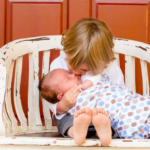New research has shown that only half of the most downloaded fertility and period tracking apps predict the correct ovulation date.
The findings show that apps that take temperature data or urine tests are more likely to be reliable.
The research, conducted at Eve Health Fertility in Brisbane in conjunction with Queensland Fertility Group, were recently presented at a Fertility Society of Australia conference in Hobart.
According to the study, as at February 2019 there were nearly 400 fertility apps available for Australian women.
Fertility apps are the fourth most downloaded type of health app, with around 70 per cent of women going through some form of fertility treatment relying on them to track their cycles.
Reseachers analysed the 36 most downloaded apps.
The results will be disappointing to anyone using an app to help them conceive.
Less than half the apps predicted the correct ovulation date and less than one in five predicted the correct estimated due date of a baby.
Alarmingly, many apps also gave incorrect fertile-window calculations.
The study found that the apps that asked for the most information were the most reliable.





